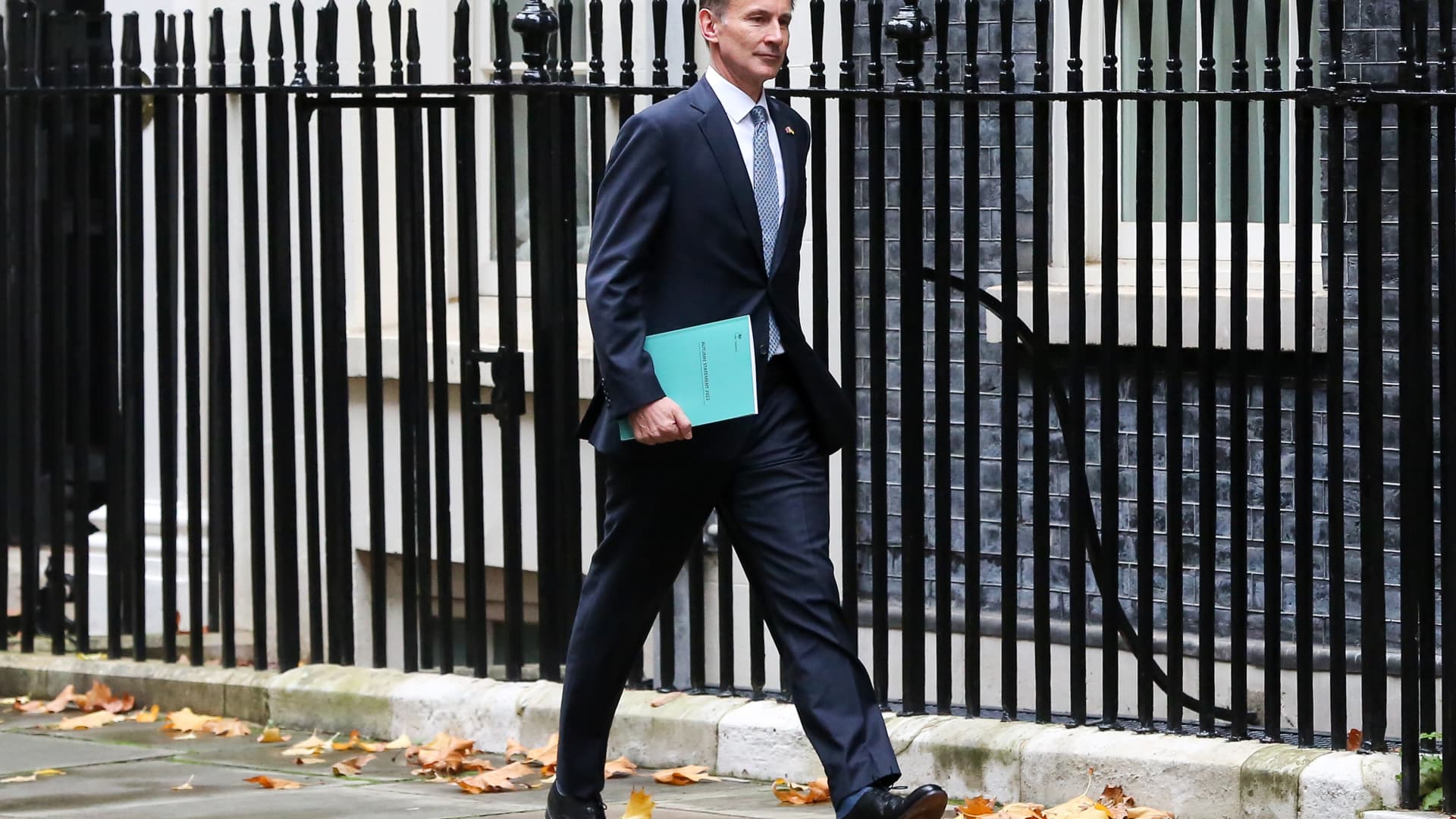UK government to announce spending, tax plans as strike action disrupts schools and travel

Finance Minister Jeremy Hunt, in his inaugural Autumn Statement, unveiled a sweeping £55 billion ($66 billion) fiscal plan.
Anadolu Agency | Anadolu Agency | Getty Images
U.K. Finance Minister Jeremy Hunt will deliver the government’s Spring Budget at 12:30 p.m. London time on Wednesday.
In his Autumn Statement in November, Hunt delivered a £55 billion ($66 billion) package of tax rises and spending cuts in a bid to plug a substantial hole in the country’s public finances and restore its fiscal credibility after a tumultuous year for the British economy.
An unexpectedly significant improvement in the country’s fiscal position and falling wholesale natural gas prices have since propelled the government to a surprise budget surplus, while public sector borrowing has undershot expectations so far in 2023.
As such, economists expect Hunt to deploy some modest fiscal support aimed at the country’s cost-of-living crisis and creaking public services, blighted in recent months by widespread industrial action.
Schools and travel will be heavily disrupted on Wednesday as teachers and rail workers go on strike, while civil servants and junior doctors are also walking out.
The government announced on Wednesday morning that its energy bill support scheme, which seeks to cap energy bills for the average household at £2,500 per year, for another three months.
Calls from some lawmakers within the ruling Conservative Party for radical action to reduce the country’s tax burden, which sits at a 70-year high, are unlikely to be heeded in Hunt’s first Spring Budget as he looks to further shore up the government’s fiscal position.
Hunt is also expected to unveil measures to tackle high levels of economic activity in the U.K., which is still the only country in the G-7 yet to have recovered its lost output during the Covid-19 pandemic.
Various British news organizations reported Tuesday that the chancellor will announce 12 new low-tax “investment zones” dotted throughout the U.K., a scaled back version of a project introduced by former Prime Minister Liz Truss.









